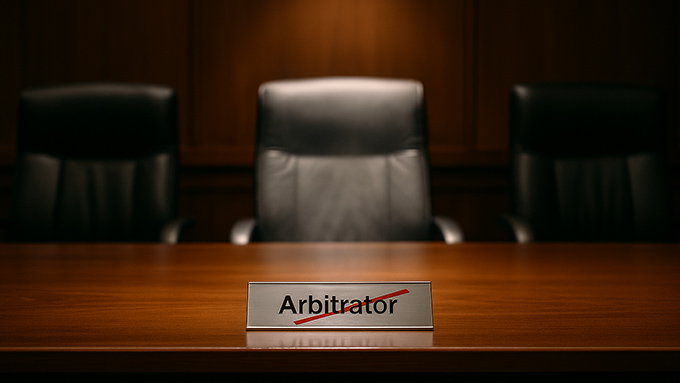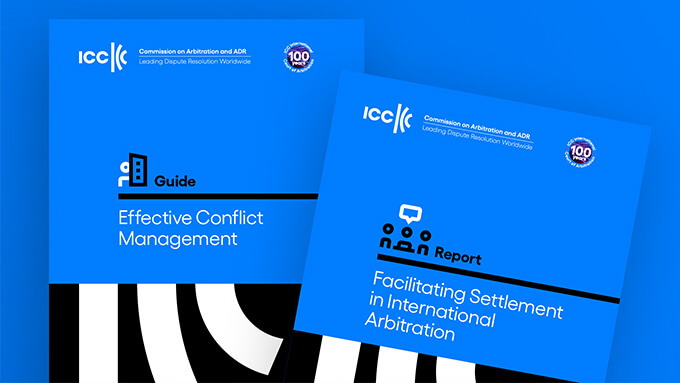LCIA Rules 2020
Introduction
On 11 August 2020, the London Court of International Arbitration (“LCIA”) has announced the changes made to the LCIA arbitration rules[1] (“LCIA Rules 2020” or “LCIA Rules”) that will become effective on 1 October 2020. The LCIA Rules 2020 will apply to any arbitration commenced under the rules on or after this date, provided that there is no express agreement between the parties providing that an earlier version of the rules should apply.
The latest revision to the rules was made in 2014 and, with this update, the LCIA aims to ensure that the rules continue to reflect best practice, and aims to “make the arbitration and mediation processes even more streamlined and clear for arbitrators, mediators and parties alike.”[2]
As stated by Paula Hodges, QC, (President of the LCIA), the changes were attempted to be done with a “light touch,” [3] and some important issues were clarified.
This newsletter aims to provide a brief summary of the amendments made to the LCIA Rules 2020. It should be noted that amendments have also been made to the mediation rules, but those are not within the scope of this newsletter.
Notable Amendments
Following the outbreak of the Covid-19 pandemic, parties involved in arbitration proceedings had to make certain changes to adapt to the “new normal.” In this respect, as a result of the increase of the use of technology, provisions were made relating to electronic communication, as well as virtual hearings. For example, Article 14.3 provides that contact may be made, “By a hearing in person, or virtually by conference call, videoconference, or using other communication technology, or exchange of correspondence.” Another example relates to awards, pursuant to Article 26.2, awards may be signed electronically. Particularly, the primacy of electronic communication has been set out in Article 4.3 of the Rules (unless the parties agree otherwise, and subject to any order the arbitral tribunal may make), and provision has been made as to the how the date of receipt is to be determined. This also includes the submission of the Request for Arbitration and Response electronically, which means that service may be made by email. Accordingly, the commencement date has been defined as the date which the Request is received by the Registrar electronically.
Article 19.2 explicitly states that hearings may be held virtually, by conference call, videoconference or using other communications technology with participants in one or more geographical places (or in a combined form).
The use of technology is also embedded in the provisions relating to Emergency Arbitrator in Article 9B. Article 9.5 states that an application for the appointment of an Emergency Arbitrator shall be made to the Registrar in writing by electronic means. Although the Emergency Arbitrator is not required to hold any hearing and may decide the claim on available documents, in the event of a hearing, among others, Article 19.2 shall apply.
In this respect, Article 14.6 is also notable as the tribunal is expressly empowered to decide on “Employing technology to enhance the efficiency and expeditious conduct of the arbitration (including any hearing).” As it is known, the arbitral tribunal is under a general duty to adopt procedures suitable to the circumstances of the arbitration, avoiding unnecessary delay and expense, so as to provide a fair, efficient and expeditious means for the final resolution of the parties’ dispute.
The arbitral tribunal’s power has also been expressly recognized in respect of early dismissal of claims. Pursuant to Article 22.1(viii), the tribunal may issue an order or award determining that any claim, defence, counterclaim, cross-claim, defence to counterclaim or defence to cross-claim is manifestly outside its jurisdiction, or is inadmissible or manifestly without merit. This is another tool that shall allow arbitrators to expedite proceedings.
The LCIA Rules 2020 allow the submission of composite Request for Arbitration and Response, thus multiple arbitrations against one or more respondents and under one or more arbitration agreement may be commenced.
The tribunal’s and the LCIA Court’s power to order consolidation of arbitrations has also been updated. The new Article 22A, deals with the LCIA Court’s and the tribunal’s power to order consolidation or concurrent conduct of arbitrations, and sets out the tribunals power to order consolidated or concurrent proceedings where the disputes arise under compatible arbitration agreements, and relate to the same or a series of transactions. This is, thus, an expansion of the situations in which consolidation is available.
Another important issue the rules now deal with relates to tribunal secretaries, and a new article has been incorporated as Article 14.A. Tribunals may require assistance from a tribunal secretary that may positively impact the effectiveness of the proceedings. However, there has been much debate as to the role of tribunal secretaries. The provision clearly expresses that under no circumstances may a tribunal delegate its decision-making function to a tribunal secretary. Additionally, Article 14.8 states that “All tasks carried out by a tribunal secretary shall be carried out on behalf of, and under the supervision of, the Arbitral Tribunal, which shall retain its responsibility to ensure that all tasks are performed to the standard required by the LCIA Rules.” This emphasizes the control the arbitrations shall maintain over the tribunal secretary. It should be noted that the use of a tribunal secretary is subject to the approval of the parties.
Provision has been made with respect to compliance and data protection issues with the inclusion of new Articles 24A and 30A.
The LCIA Rules now set out a three-month time limit, encouraging tribunals to render their award within three months following the last submission made by the parties (whether made orally or in writing); whereas, the previous version of the Rules merely provided that tribunals should issue their final awards as soon as reasonably practicable following the last submission from the parties.
Additionally, the Schedule of Arbitration Costs[4] has also been amended. Particularly, the maximum hourly rate provided for arbitrators has increased from £450 to £500, taking into consideration the complexity and significance of certain cases. However, in exceptional cases, the rate may be higher as previously set out in the Schedule of Arbitration Costs. The registration fee to commence an arbitration, the hourly rates of the LCIA Secretariat, the application fee for the appointment of an Emergency Arbitrator, and the Emergency Arbitrator’s fee, have also been increased. As a reflection of the amendments made with regard to tribunal secretaries, a provision has been included regarding their hourly rates.
Conclusion
The changes made to the LCIA Rules are likely to increase the efficiency of arbitrations conducted under the LCIA Rules and, thus, the updates are welcomed. It seems plausible to suggest that these updates will allow the LCIA to maintain its position as one of the leading arbitration institutions.
[1] The LCIA Rules 2020 are accessible at: (Access date: August, 2020).
[2] For the update announced in the LCIA website, please see: https://www.lcia.org/lcia-rules-update-2020.aspx (Access date: August, 2020).
[3] For the update announced in the LCIA website, please see: https://www.lcia.org/lcia-rules-update-2020.aspx (Access date: August, 2020).
[4] The Schedule of Costs is acccessible at: https://www.lcia.org//Dispute_Resolution_Services/schedule-of-costs-lcia-arbitration-2020.aspx (Access date: August, 2020).
All rights of this article are reserved. This article may not be used, reproduced, copied, published, distributed, or otherwise disseminated without quotation or Erdem & Erdem Law Firm's written consent. Any content created without citing the resource or Erdem & Erdem Law Firm’s written consent is regularly tracked, and legal action will be taken in case of violation.
Other Contents

Emergency arbitration addresses the need for interim protection before the arbitral tribunal is constituted in institutional arbitrations. Arbitral institutions establish short timeframes to ensure parties can obtain interim relief quickly. For example, the International Chamber of Commerce (“ICC”) requires that the emergency...

International arbitration remains the preferred mechanism for resolving complex cross-border disputes. Yet despite its advantages—neutrality, enforceability, flexibility—arbitration is frequently criticized for being too slow, too expensive, and too procedurally heavy. Often, parties proceed through hearings and...

For arbitral awards rendered in international commercial arbitration to produce legal effects in foreign jurisdictions, they must be subjected to proceedings for “recognition” and “enforcement.” This process is governed by the New York Convention as well as by the provisions of the Law on Private International Law...

Arbitrability, the determination of whether a specific subject matter can be resolved through arbitration, constitutes a fundamental aspect of arbitration within the scope of international commercial dispute resolution. This concept draws a delicate balance between party autonomy—a fundamental principle of arbitration...

The recognition, enforcement, and annulment of foreign court and arbitral awards in Türkiye are processes in which public policy emerges as one of the most critical criteria for review, both in theory and in practice. The Court of Cassation decisions determine the direction of case law regarding the scope and...

As is well known, the action for annulment of objection is a special type of lawsuit regulated under Article 67 of the Turkish Execution and Bankruptcy Law No. 2004 (“EBL”). The primary objective of this action is to nullify a debtor’s objection to execution proceedings. Despite its procedural function of facilitating...

On 16 December 2024, the London Court of International Arbitration (“LCIA”) released its third batch of challenge decisions covering the period from 22 July 2017 to 31 December 2022. The LCIA has also issued a detailed commentary that identifies key legal themes and analytical trends, offering practitioners...

The International Chamber of Commerce (“ICC”) has published its report on the dispute resolution statistics for 2023 (“Report”) , shedding light on the evolving landscape of international arbitration...

Syndicated loans undoubtedly hold a significant position among global financing models. In 2023 alone, 3,655 syndicated loans were provided to companies in the US, with their total value reaching USD 2.4 trillion...

Preliminary attachment refers to the temporary seizure of a debtor's assets to secure a creditor's claim. While it serves as a vital instrument for safeguarding the rights of creditors, it is subject to specific and stringent conditions under Turkish law to prevent any potential misuse...

One of the most important reasons for parties to choose arbitration is the opportunity to freely choose their arbitrators. This freedom granted to the parties also distinguishes arbitration from proceedings before state courts, where the parties are deprived of the power to determine the judges who will conduct the...

The 6th Civil Chamber of the Court of Cassation ruled on October 12, 2022, that national courts have jurisdiction over objections to provisional measures in international arbitration disputes...

The declaration of intent to resolve disputes through arbitration is the fundamental constituent element of an arbitration agreement. To speak of a valid arbitration agreement, the parties' intention to arbitrate must emerge in a way that leaves no room for dispute...

In the wake of the evolving dynamics of commercial transactions, the Netherlands Arbitration Institute Foundation (NAI) announced new arbitration rules . 2024 NAI Arbitration Rules are in force as of 1 March 2024 and will be applicable on proceedings filed on or after this date...

With the global shift to online activities, domain names play a crucial role in identifying businesses. It is more common than ever for a domain name to be registered that is confusingly similar to a trademark or service mark...

The ICC Commission on Arbitration and ADR (“Commission”) published a new guide and report with the aim to increase awareness on alternative dispute resolution (“ADR”) mechanisms to prevent disputes and strengthen the relationship between all stakeholders.The Guide on Effective Conflict Management...

Mergers and Acquisitions (“M&A”) are restructuring of companies or assets through various types of financial transactions, such as mergers, acquisitions, purchase of assets, or management acquisitions. This Newsletter article covers M&A disputes being solved before arbitral tribunals.

In the context of arbitration practice, the principle of revision au fond means that the courts can not examine the merits of a dispute when reviewing an arbitral award. This principle is most commonly encountered in set aside and enforcement proceedings. An arbitral award is evidence of the parties’ willingness...

Under Turkish law, parties may agree on the settlement of disputes that have arisen or may arise, regarding the rights that they can freely dispose of, by arbitration. However, disputes which are not subject to the will of parties, such as the disputes relating to in rem rights of immovables, bankruptcy law...

On 4 September 2020, a research project “Does a Right to a Physical Hearing Exist in International Arbitration?” was launched by an International Council for Commercial Arbitration (“ICCA”) taskforce. Due to the Covid-19 pandemic, many arbitration hearings were held online. Many institutional rules...

Dubai International Arbitration Center amended its Arbitration Rules on 25 February 2022. The 2022 Arbitration Rules were published on 2 March 2022 and came into effect on 21 March 2022. The Rules will be applied to arbitrations that are filed after 21 March 2022; unless parties agree otherwise...

In the aftermath of the Achmea decision, controversies on intra-EU arbitrations continue. Most recently, the Paris Court of Appeal has annulled two arbitral awards rendered against Poland. Meanwhile, the Higher Regional Court of Berlin has refused to declare that an Irish investor’s ICSID claim...


Under Turkish law, the legal remedy that can be applied against arbitral awards is an annulment action. Law on International Arbitration No. 4686 (“IAL”) finds its application area in arbitration proceedings where Turkey is the place of arbitration...

It is well known that following a decision of the Court of Justice of the European Union, problems arose related to arbitration of intra-EU disputes, and particularly arbitration under the Energy Charter Treaty...

Arbitration in corporate law contains controversial elements in many respects, especially the issue of arbitrability. Even in legal systems where these disputes are considered to be arbitrable, uncertainties remain on whether an arbitration clause can be included in the articles of...





Arbitration has benifited from a great increase in the use of technology which has directly effected the conduct of proceedings. More particularly, with digitalization, the way that we conduct arbitration proceedings has been changed to reflect the current needs of parties, with an aim of increasing time...
































































